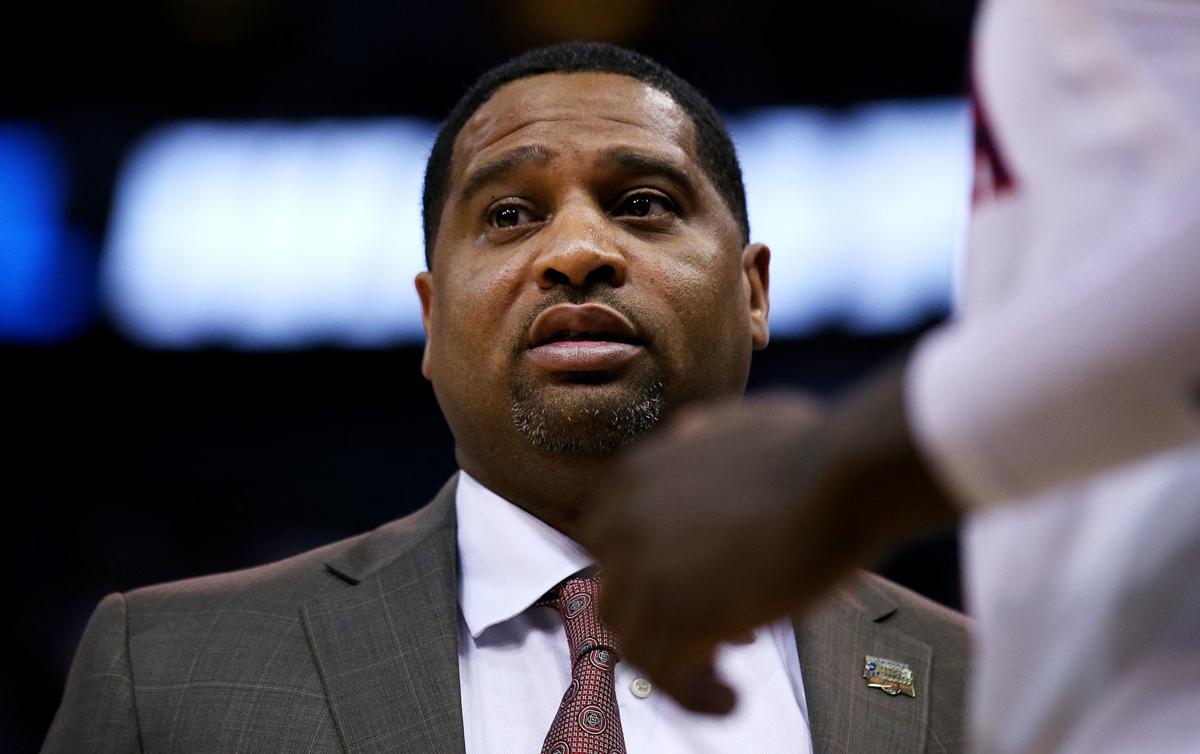Book Richardson's attorney formally asked a federal judge Monday to sentence the former UA assistant coach to only probation during his sentencing hearing on May 30.
In a motion filed Monday evening, New Orleans-based attorney Craig Mordock told U.S. District Court judge Edgardo Ramos he felt a "sentence of probation would be sufficient but not greater than necessary to achieve the statutory purposes of sentencing."
Richardson reached a plea agreement in January to a federal bribery charge, admitting he took $20,000 in exchange for a promise to direct UA players to aspiring agent Christian Dawkins for representation.
Sentencing guidelines call for 18-24 months in jail — and a probation officer recommended three months in Richardson's case — but Mordock said Monday he was hoping Richardson would only receive probation.
Mordock's 15-page motion cited legal precedent saying that the sentencing guidelines were only advisory, while discussing Richardson's character and arguing that the conduct Richardson displayed falls "far outside the norm of bribery cases that are typical of the offense."
The motion also cited the lack of UA or NCAA discipline penalties, among other things.
"Undeniably Mr. Richardson accepted money from the government under the guise of steering athletes to Christian Dawkins’ fledgling sports management company but in doing so, the harm has been largely self-inflicted," the motion read. "The two student athletes that Mr. Richardson was supposed to refer to Dawkins’ agency have never been suspended or ruled ineligible by the NCAA. Mr. Richardson never gave them the money and did not jeopardize their careers in basketball.
"Furthermore, he did not intend to harm the University of Arizona in any way. Indeed, the Government merely contends that his conduct exposed Arizona to potential NCAA sanctions.
"However, despite this exposure his conduct caused, the NCAA has not imposed any monetary fines or other penalties upon Arizona or any other university involved in the case. It is with great emphasis that the foregoing does not justify Mr. Richardson’s actions.
"Clearly, at the time of the events giving rise to the charges, Mr. Richardson was aware his conduct was in violation of the NCAA rules. It is conduct he knew he should not have been engaging. Therefore, he accepts the consequences of his actions and offers no excuse for conduct he realizes was wrong."
Mordock's motion also said it would be "fundamentally unfair" for Richardson to go to prison when many others doing the same things are not being punished.
"The facilitation of payments to talented college athletes – which undoubtedly violates the NCAA’s rules – is commonplace and has historically been considered a mere violation of NCAA rules, not a federal crime," the motion said.
Mordock also argued that Richardson poses no threat to the public, did not have a prior criminal record and has already suffered through "public humiliation" since being arrested in September 2017 as part of the federal investigation into college basketball.
Attached to the motion were letters of reference about Richardson from professional and personal contacts, including Tucson attorney John Leader.





